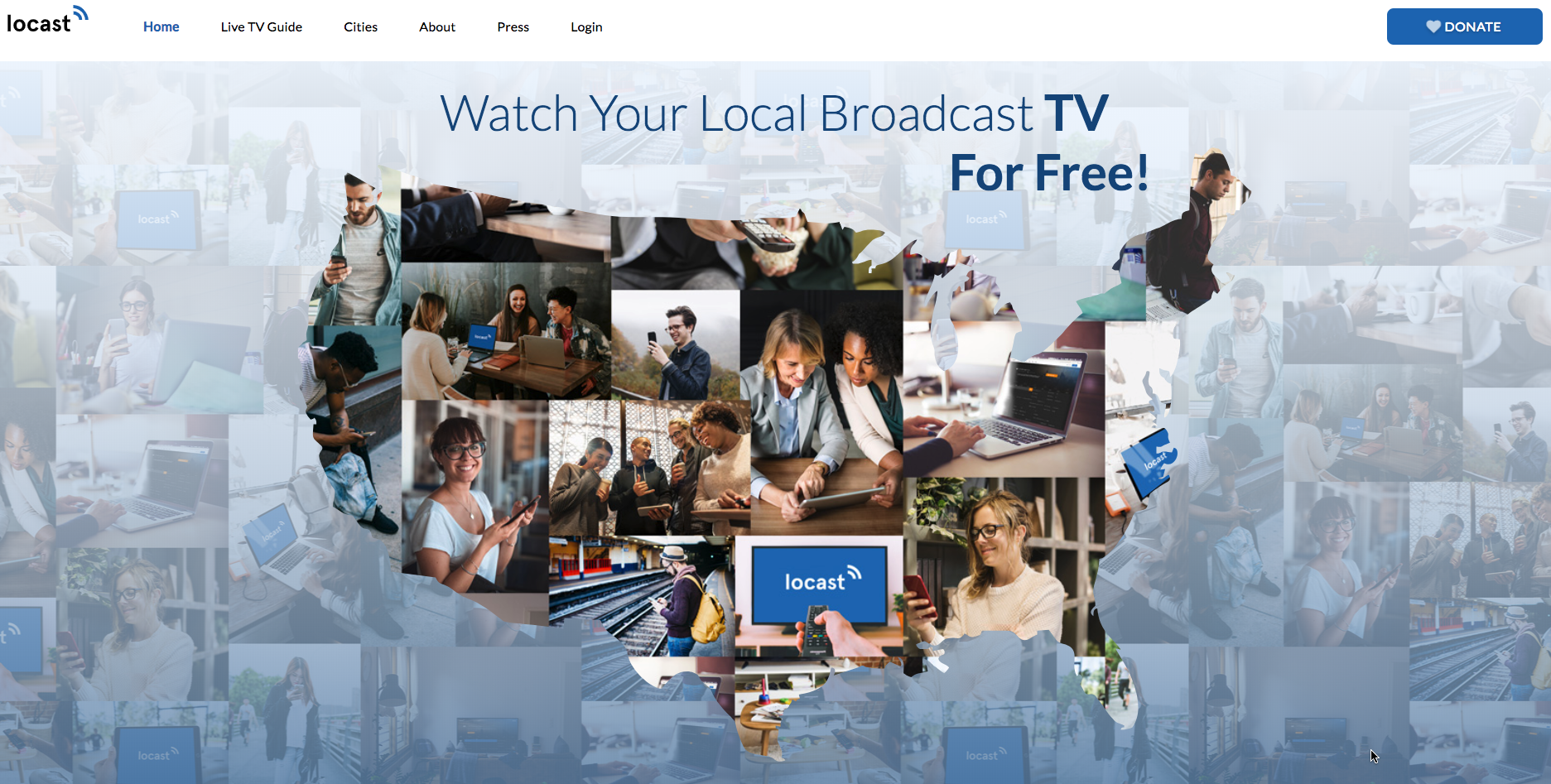Broadcasters Lay Out Case Against Locast in Court Filing
Says Locast is a “freemium” service, not a non-profit

WASHINGTON—The fight between broadcasters (ABC, CBS, Fox and NBC) and Locast is nearing its day in court, but the lawyers representing the broadcasters (plaintiffs) have filed a request for summary judgement with the U.S. District Court in New York as they do not believe, and provide reasoning, as to why Locast is not a non-profit entity and therefore cannot rebroadcast their signals.
Locast is a streaming service that offers local channels to consumers in a market over the internet. It was founded by David R. Goodfriend, who has claimed that the service operates as a non-profit and as such under the Copyright Act of 1976 has the right to rebroadcast these networks without paying fees to the networks. Locast does not charge a monthly fee, however it does say users can donate (generally $5) to help keep Locast running.
Currently, Locast serves 31 markets across the U.S.
The plaintiffs initially filed suit against Locast in July 2019. They believe that Locast, despite its claims as a non-profit, is little different than Aereo, another business that rebroadcast their signals and was ultimately defeated by a Supreme Court decision.
In the letter sent to U.S. District Court Judge Louis Stanton, the lawyers for the plaintiffs lay out three points as to why Locast does not fall under the protection of the Copyright Act of 1976.
First, they say that the exemption that Locast is using is limited to localized media, like broadcast translators and boosters, that serve viewers in the immediate vicinity, not to services that have a global reach, like they argue Locast’s internet-based service has.
They continue to make their case by arguing Locast cannot prove it does not make secondary transmissions “without any purpose of direct or indirect commercial advantage.” The plaintiffs say that Locast uses copyrighted material to attract new members to its organization, as well as to boost its name recognition, collect data and conferring benefits on pay-TV companies that support it.
The professional video industry's #1 source for news, trends and product and tech information. Sign up below.
Lastly, the plaintiffs say that Locast violates the tenet that non-profits may not impose any “charge” on recipients. As mentioned, Locast does not have a monthly subscription fee, but the plaintiffs claim that after an introductory period, Locast interrupt’s a user’s TV stream every 15 minutes on a given channel with an advertisement asking for $5 per month, described as a donation; this is a tactic the plaintiffs compare to "freemium" services. If the user does not pay the $5, they are sent back to Locast’s program guide and must navigate back to the channel they were watching, per the letter. If a user pays, they then receive uninterrupted service for a month.
“[T]he court should grant summary judgement for Plaintiffs on these grounds based on the plain text, basic principles of statutory interpretation and copyright law, and the undisputed facts,” the letter reads.
In its own letter, Sports Fans Coalition NY, which is the parent company of Locast, lays out its defense of why it falls under the protection of the Copyright Act of 1976.
It claims that, as per the law, it is not a cable system, which the plaintiffs do not contest; that no individual is taking commercial advantage of the service because no one owns SFCNY; that most nonprofits partake in commercial activities in order to further their charitable mission; and that more than half of its active users do not make donations.
Both letters are available online. The plaintiffs letter here, and the defendants letter here.
